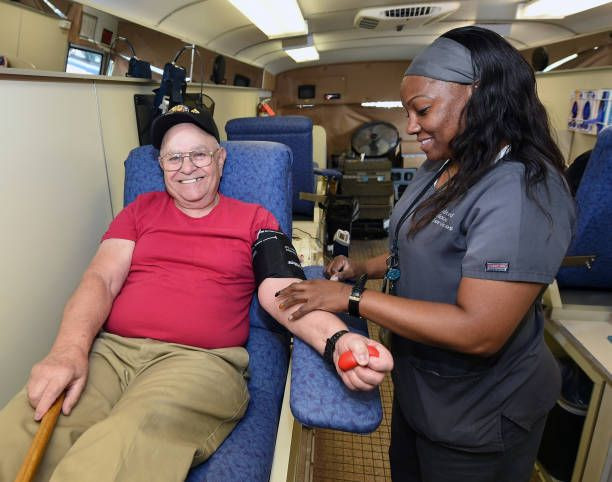American Red Cross Month: 8 Myths About Blood Donations Explained

March is Red Cross month, so now is the perfect time to consider blood donation. The American Red Cross is often the first line of defense when an emergency strikes, making it necessary that they have access to blood donations to tend to the victims of disasters.
A simple blood donation can save a life, and the American Red Cross has made it as easy as possible for donors to give blood. Even with the need for blood donations and the efforts made by the Red Cross to set up blood drives, many myths still exist about blood donation in general. To help you make the decision to donate blood in 2019, we’ve debunked these myths for you.
Myth #1: Vegetarians Can’t Donate Blood
If you are a vegetarian, you may think you are unable to donate blood because you may not have the necessary iron levels. With a healthy diet, a vegetarian can easily maintain their iron levels and donate blood to their local Red Cross. The body replenishes any lost iron shortly after giving blood as long as a donor maintains a healthy diet afterward, according to Blood Connect, an organization dedicated to reducing blood shortages.
Myth #2: Blood Donation Is Painful
Some donors are afraid that blood donation will be painful, especially if they have a fear of needles. According to the Red Cross, blood donation is relatively painless and only takes a few minutes to complete. Needle fears can be overcome when you consider the benefits of donating blood to save another.
Myth #3: Blood Donation Can Cause HIV Or Other Blood Infections
Giving blood is safe as a number of procedures are followed to ensure safe and secure donation. A new needle is used for each blood donation and safety techniques are adhered to, preventing the possibility of contracting HIV or other blood diseases and infections, according to Blood Connect.
Myth #4: I’m Not Old Enough To Donate Blood
You are old enough to give blood at age 16 in some states, but you must have parental permission. Safe blood donation can be given until the age of 60, without complication or issue, Blood Connect said. As long as you are fit and healthy, you can provide a blood donation to the Red Cross for someone to have when they need it most.
Myth #5: I Take Medication And Can’t Donate Blood
Medication does not prevent the ability to give a blood donation. Though depending on the medication you are taking, you may have to halt giving a donation, according to Blood Connect. The American Red Cross can advise you about your blood donation with the proper information about the medication you are taking.
Myth #6: Blood Donation Is Unhealthy
According to Blood Connect, only 350 to 450 ml of blood is donated by a person during a blood donation. This is enough blood for the Red Cross to use while still allowing you to remain healthy after your donation. The body will replenish the blood lost after your donation, so you don’t have to worry about giving.
Myth #7: I Don’t Have The Right Blood Type
All blood types are welcomed by the Red Cross as a donation. While some blood types are rarer than others, there is a demand for all types of blood, according to the American Red Cross. The Red Cross will accept blood donations from all individuals with proper screening as every donation does count and make a difference.
Myth #8: I’ll Faint If I Donate Blood
Some donors do feel faint after a blood donation, but by laying down, the symptoms will subside, according to the Red Cross. During a blood donation, only one pint of blood is taken from the body, and this can be replenished in as little as a few hours to a few weeks, depending on the type of donation, the Red Cross said.
© Copyright IBTimes 2024. All rights reserved.





















